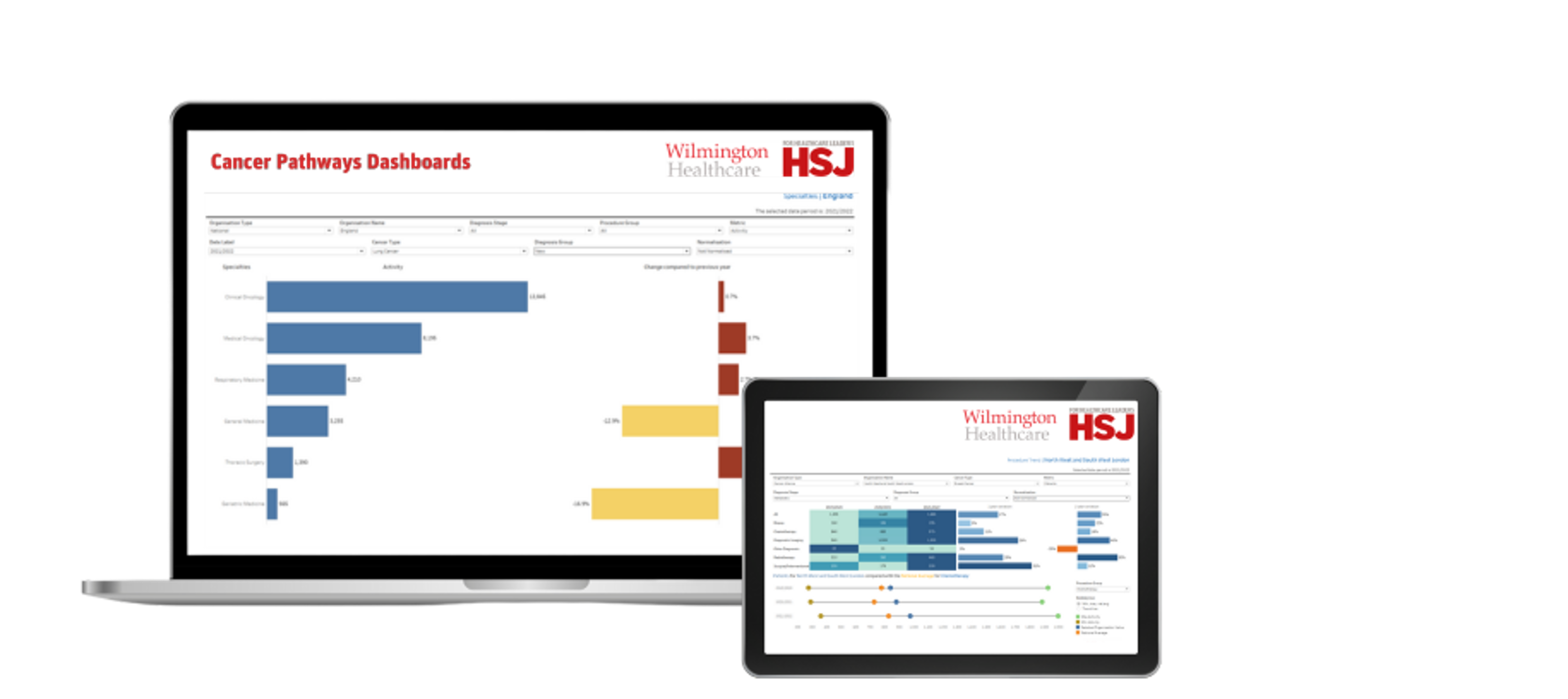Oncology in the NHS: Situations, challenges, and solutions

Oncology is a singularly complex healthcare area. In clinical terms, every year the NHS must treat thousands of patients with a huge range of different cancers - at different stages and rates of morbidity and mortality. Rare tumour types must be dealt with just as more common ones.
At the same time, more and more diagnostics and treatments - pharmacological, surgical, radiological, genetic - are being adopted. Systems must find new ways of funding all these effectively and equitably.
And, at a managerial level, a remarkably wide range of services must be put in place to optimise the stretched resources, staff, and experience available. As well as direct treatment, this includes services for prevention, screening, diagnosis, post-operative care, support, and rehabilitation, as well as end-of-life care.
In the English NHS, new stakeholder groupings such as integrated care systems - slated to take over cancer services by April 2025 - cancer alliances, new pathways, new funding mechanisms, and new drivers, such as addressing health inequalities and improving population health, are all influencing cancer care.
All this points to a challenging picture for suppliers to the NHS, attempting to navigate who, where, and how to segment, target, and engage - and with what proposition.
At Wilmington Healthcare, we offer our pharma clients a range of solutions to help them understand the issues, refine their propositions for the NHS, and effectively engage with the most important stakeholders for their cause.
We work with and analyse many different NHS, public health, and prescribing sources to provide a rich and actionable data picture; we consult on where services and products fit into a pathway; we advise on the right organisations and people to contact and engage to suit your sales model; and we provide an array of tools and metrics to help you manage the narrative that you’re taking to your NHS customers.
Cancer pathway redesign
It should be stressed that pathway redesign is very much where pharma should be centring the conversation with its NHS customers.
Operational and financial pressures, coupled with the experience of doing things differently during COVID, mean that NHS bodies are primed to develop bold and innovative solutions.
Some of these new service models are already taking shape. The backlog of cancer cases has accelerated the development of community diagnostic centres, which have now achieved millions of checks.
Technology is another important avenue of change, with a considerable drive around developing remote-monitoring solutions and, specifically, the development of virtual wards for vulnerable patients, including for oncology and palliative care patients, as Norfolk and Norwich University Hospital is doing.
Many cancer services are also run through a ‘hub and spoke’ system, with prescribing decisions typically made by clinicians and senior pharmacists operating out of the ‘hub’ (typically a big teaching hospital) though the drugs themselves may be administered at the ‘spoke’ institution (which may be a smaller district general hospital).
What is abundantly clear, therefore, is that all commercial propositions will have to engage meaningfully with the operational realities and pain points of local services, as well as the strategic priorities set at ICS level.
That might mean, for example, pinpointing how your offer can help to drive clinical efficiencies, or make better use of available workforce resources, or reduce the backlog and support elective recovery, and so on. As ever, knowing local circumstances is key.
Interrogating cancer pathways
What we’re finding at Wilmington Healthcare is that our clients in pharma are often better placed than the NHS in terms of time, resources, and expertise to properly interrogate cancer pathways - particularly rarer tumour types - including costing out the whole patient journey, looking at the bottlenecks, and seeing where quicker diagnoses in particular could make improvements to outcomes.
This has meant working with agencies such as us and, in particular, assembling the right data and story to effect change in the NHS.
It also explains the growing popularity of our Cancer Pathways Tool, which allows the user a holistic accord of all the relevant pathway data - combining Inpatient (admitted patient care) and outpatient data into a single view - which can be expanded to incorporate any solid tumour type or haematological malignancies.
We can incorporate diagnostic imaging, biopsy and other diagnostics, chemotherapy, radiotherapy, and surgical interventions.
And we can look at pathways as they exist in organisations, such as Cancer Alliances, Integrated Care Systems, and Joint commissioning committees (JCCs), to see how they vary.
We look at a whole variety of metrics alongside standard HES metrics, such as level of activity, numbers of patients, and cost. This can include: levels of complications and comorbidities, time from diagnosis to treatment, length of treatment, time between rounds of treatment, and how many patients are initiating or discontinuing therapy.
Perhaps you’re interested in how many patients in an area are being diagnosed by a particular procedure? Not only is this in our data, but we can also show how this patient group varies and compares with other areas. It’s equally possible to state how many patients go on to receive chemo, radiotherapy, or surgery and, again, how there is variation between areas. This can be used to tell a compelling story using outcomes to suggest best practice that can be used across the NHS. We can show you oncology spend, and how this varies from ICS to ICS, cancer alliance to cancer alliance, or region to region, on any interventions performed by the NHS.

New: Wilmington Healthcare’s Quantis - Cancer Pathways Dashboards
Health Inequalities in oncology
One innovative area we are working in at the moment concerns Health Inequalities. A huge policy push by the government and NHS England is seeing more and more fruitful NHS-Industry collaboration. Put simply, many cancer patients are not getting as good a service as they should be and the data shows there are inequalities here associated with socio-economic deprivation, age, ethnicity, or disability.
These patients present later, leading to more difficult disease treatment and heavier NHS resource use. By earlier reach out and identification, and getting them onto a pathway sooner, these patients can achieve better outcomes – and this is absolutely an area where pharma can help.
Just some of the health inequalities questions we’ve answered include:
- What is the distribution of breast cancer patients by deprivation quintile who have surgical/interventional procedures in England?
- What is the time from diagnosis to treatment (chemotherapy) of breast cancer patients by deprivation quintile in England?
- What is the average age of CrC patients in London JCC split by ethnicity?
- What is the distribution of newly diagnosed lung cancer patients by age band in the Greater Manchester Cancer Alliance?
- Can I view chemotherapy data for breast cancer across a range of cancer alliances?
- Is there variation in the use of different diagnostics/interventions by socioeconomic deprivation on the prostate cancer pathway?
In summary
Data will be absolutely crucial to targeting the right resources to the right patients over the next decade - without it, we will not be able to beat the backlog and get cancer waiting lists back under control. The NHS is crying out for help on insight and solutions that can make a difference: Wilmington Healthcare’s role is to help you forge commonality and routes to partnership.
If you’d like to know more about our cancer pathways tool and other data or consultancy solutions, please contact us.
About Wilmington Healthcare

With unparalleled NHS expertise, unrivalled NHS data and outstanding Industry knowledge, Wilmington Healthcare offers consultancy, data, data visualisation, insight and analysis across all therapy areas. We deliver sustainable outcomes for NHS suppliers and ultimately patients. To find out more about how we can support your NHS partnerships, visit wilmingtonhealthcare.com.











